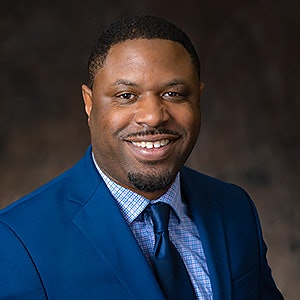The June 29, 2023, Supreme Court ruling on affirmative action abruptly ended race-conscious admissions practices in higher education, eroding nearly 50 years of precedent. Except for a few pastors, arguably the Black Church has been largely silent regarding the unprecedented ruling. In the ongoing struggle for racial equality, the Black Church has long been an unwavering pillar of strength and advocacy. Through turbulent decades marked by civil rights battles and social justice movements, the Black Church has consistently championed the cause of justice, equality, and equity. Today, as we navigate the ever-evolving landscape of affirmative action ruling, the Black Church's role remains pivotal in ensuring that the fight for racial equity endures.
Affirmative action, a set of policies designed to level the playing field for marginalized communities, has faced challenges and scrutiny in recent times. Critics argue that it is a form of reverse discrimination, while proponents assert that it is a necessary tool to address historical and systemic disparities. According to diversity, equity and inclusion expert, Dr. Shaun Harper, “While the discontinuation of race-conscious admissions policies and practices will negatively affect students of color across a range of racial and ethnic groups at predominantly white institutions (PWIs), Black applicants will be most devastated.”
In this contentious debate, the Black Church emerges as a moral compass, providing guidance and resilience. Dr. Antonio L. Ellis
Dr. Antonio L. Ellis
The National Council of Churches vehemently opposed the Supreme Court’s ruling on affirmative action in college admissions. In the report, Bishop Vashti Murphy-McKenzie, NCC President and General Secretary notes: “Race has been a factor in making employment, housing, banking, health care and education decisions for centuries in America. The ruling by the Supreme Court adds to the pain of marginalized people and pits one group against the other, vying for a few spaces in certain institutions of higher learning. When our colleges, corporations, communities, and country make space for people of diverse backgrounds and experiences to participate fully, it enriches all our lives. This ruling undermines ‘liberty and justice for all’ in the face of historical discrimination and rising racism.”
Historically, the Black Church has served as a beacon of moral authority, illuminating the path toward justice. Its teachings emphasize love, compassion, and the imperative of standing up against injustice. While the affirmative action ruling threatens to erode the progress made, the Black Church reminds us of our moral obligation to rectify the injustices that persist in our society. One of the most critical roles the Black Church plays is that of an advocate and educator. It provides a platform for raising awareness about the significance of affirmative action in addressing historical disparities. Through sermons, community forums, and educational programs, it emphasizes the importance of leveling the playing field for all, ensuring that opportunities are not denied because of one's racial background.
The Black Church has a rich history of community mobilization. It rallies its congregants and allies to engage in peaceful protests and advocacy campaigns. By uniting communities, it empowers individuals to be vocal advocates for policies that promote racial equity, including affirmative action. The most recent affirmative action ruling can directly impact individuals seeking educational or employment opportunities. The Black Church steps in to provide emotional support, counseling, and resources to those affected by the Court's legal decision. It offers a sanctuary for those grappling with the consequences of these policies and stands as a symbol of unwavering support.
Recognizing the strength in unity, the Black Church often collaborates with other religious organizations, civil rights groups, and advocacy organizations. Through coalition building, it leverages collective power to protect and expand affirmative action policies. In a nation where racial disparities persist, the Black Church serves as a resounding call to action. It encourages voter education, engagement, and civic participation, urging its congregants to support leaders who uphold the values of equity and justice. By mobilizing its members to vote, it plays a vital role in shaping the political landscape.
The Black Church's role is not merely a historical relic but a dynamic and critical force for change. It embodies the unwavering spirit of justice and equity, offering hope and guidance in turbulent times. As we navigate the complex debates surrounding affirmative action, let us recognize and honor the profound impact of the Black Church, not just as a religious institution, but as a tireless advocate for a more just and equitable society. In its enduring voice, we find inspiration, courage, and a commitment to building a better future for all.
Dr. Antonio L. Ellis is a senior professorial lecturer in the educational policy and leadership doctoral program and special education program at American University School of Education. He is also the director of the Institute on Education Equity and Justice.
















